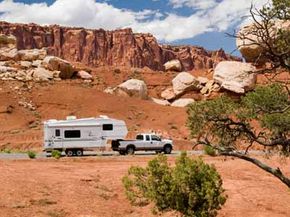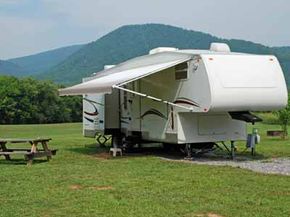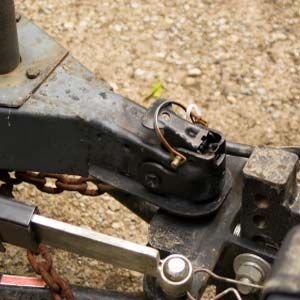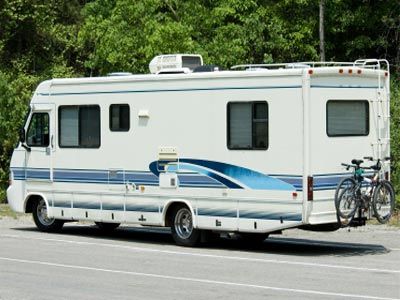Camping holds a special place in the hearts of many vacationers, with memories of campfire chats, bears and raccoons at harrowing proximities to campsites, and marshmallow roasting feats of perfection. For those who are more interested in the middle ground -- the fresh air of a woodland vista but with some of the conveniences of modern living -- a recreational vehicle (RV) can be just the ticket.
There are many different types of vehicles that fall under the umbrella term recreational vehicle, from small pop-up campers and travel trailers to fully accessorized motor homes. But not all of them use the same type of hitch system -- and some don't use a hitch system at all. Lots of motor homes are fully connected to the driving section of the vehicle, so there's no question of how to hitch them. In the case of other models, you may have to hitch them up to a towing vehicle.
Advertisement
RV hitches generally fall into two categories -- those that attach to the rear of the tow vehicle and those that attach to the bed of a pickup truck. The weight of your RV will go a long way in determining which setup you'll need. Another major factor is the capability of the towing vehicle. Not all vehicles are created equal, and this can limit both the type of RV you can haul and, in turn, the type of hitch system you use to tow it. On the next page, we'll look at how you should go about choosing a hitch to pull an RV.
Advertisement



